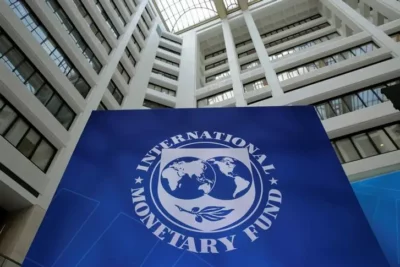The International Monetary Fund (IMF) has reached a staff-level agreement with Kenya for a $976 million loan to support the country’s economic reform program. This agreement, announced today, aims to bolster Kenya’s economic recovery, enhance fiscal sustainability, and mitigate the impact of external shocks.
The new loan arrangement is part of the IMF’s Extended Credit Facility (ECF) and Extended Fund Facility (EFF) programs, which provide financial assistance to countries facing significant balance of payments problems. The agreement will undergo approval by the IMF’s Executive Board, expected in the coming weeks.
“We are pleased to have reached a staff-level agreement with the Kenyan authorities,” said Mary Goodman, the IMF mission chief for Kenya. “This program will support Kenya’s economic reform agenda, focusing on fiscal consolidation, debt management, and structural reforms to boost growth and create jobs.”
Kenya’s economy has faced multiple challenges in recent years, including the lingering effects of the COVID-19 pandemic, adverse weather conditions affecting agriculture, and global economic uncertainties. The IMF loan is expected to provide critical support in addressing these challenges while promoting inclusive and sustainable economic growth.
The agreement outlines several key policy measures, including fiscal reforms aimed at reducing the budget deficit and ensuring debt sustainability. The Kenyan government has committed to enhancing revenue mobilization through improved tax administration and broadening the tax base. Additionally, the program emphasizes the importance of strengthening public financial management and curbing non-essential expenditures.
“The IMF’s support is crucial for our economic stability and growth,” said Ukur Yatani, Kenya’s Cabinet Secretary for the National Treasury. “This agreement will help us implement essential reforms to stabilize our economy, reduce debt vulnerabilities, and foster a more resilient economic environment.”
In addition to fiscal measures, the program includes structural reforms to enhance the business environment and promote private sector-led growth. These reforms aim to improve governance, enhance the efficiency of public investment, and strengthen the financial sector.
Economic analysts have welcomed the IMF’s agreement, highlighting its potential to restore investor confidence and stabilize Kenya’s macroeconomic environment. “This agreement is a positive step for Kenya,” said Kwame Owino, CEO of the Institute of Economic Affairs. “The financial support and policy reforms will help address fiscal challenges and create a more conducive environment for economic recovery.”
The IMF will continue to work closely with Kenyan authorities to monitor the implementation of the agreed measures and ensure that the program’s objectives are achieved. The loan disbursements will be phased, contingent on Kenya meeting specified performance criteria and reform milestones.
Public response to the agreement has been mixed, with some expressing concerns over the potential for austerity measures and their impact on vulnerable populations. However, the Kenyan government has assured that social protection programs will be safeguarded and that efforts will be made to protect the most vulnerable segments of society.
As Kenya embarks on this new phase of economic reform, the collaboration with the IMF is expected to play a critical role in stabilizing the economy, enhancing fiscal discipline, and laying the groundwork for sustained economic growth. The forthcoming approval by the IMF Executive Board will be a significant milestone in formalizing the agreement and commencing the implementation of the support program.
The $976 million loan agreement signifies a renewed commitment to economic stability and growth, positioning Kenya to navigate its current challenges and build a more prosperous future.
